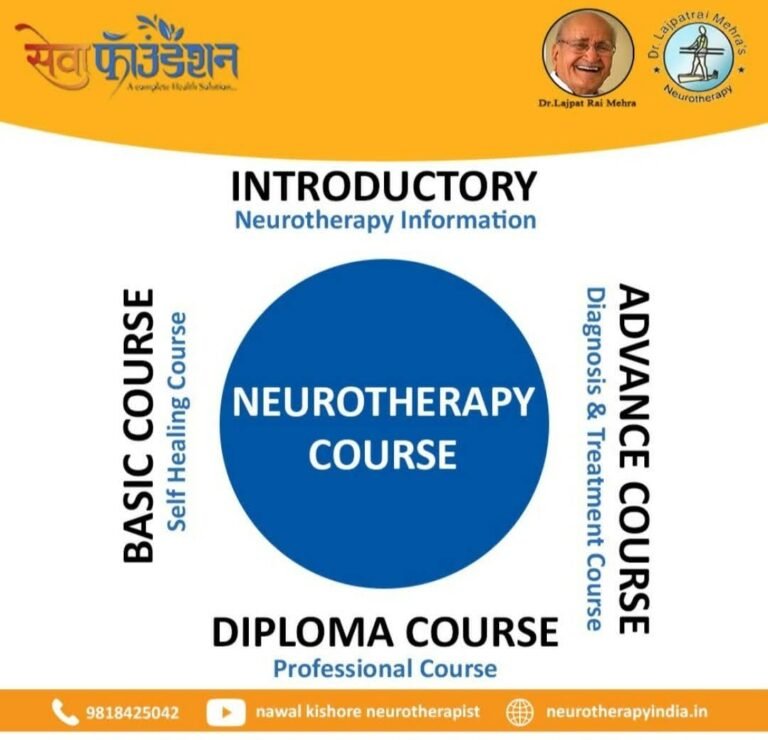The Power Of Neurotherapy: What You Need To Know
In an era where mental health challenges are increasingly prevalent, the emergence of innovative therapies offers hope and promise for those seeking relief. Neurotherapy, also known as neurofeedback or EEG biofeedback, is a non-invasive treatment approach that harnesses the brain’s natural ability to adapt and change. With its roots in neuroscience, neurotherapy has gained recognition for its effectiveness in addressing a wide range of conditions, from anxiety and depression to attention deficit disorders and beyond. In this article, we delve into the power of Neurotherapy, exploring its principles, applications, and potential benefits for individuals seeking to optimize their brain function and mental well-being.
Understanding Neurotherapy
At its core, Neurotherapy operates on the principle of neuroplasticity—the brain’s remarkable capacity to reorganize and adapt in response to experiences and stimuli. Neurotherapy techniques, such as neurofeedback, utilize real-time feedback of brainwave activity to train the brain to function more efficiently and effectively. By providing the brain with information about its activity, individuals can learn to regulate their brainwave patterns and achieve improved cognitive, emotional, and behavioral functioning.
How Neurotherapy Works
Neurotherapy typically begins with a comprehensive assessment of brain function using electroencephalography (EEG) technology. During an EEG session, electrodes are placed on the scalp to measure electrical activity in different regions of the brain. This data is then analyzed to identify patterns associated with specific symptoms or conditions.
Once patterns of dysregulation are identified, Neurotherapy sessions involve the individual engaging in interactive exercises or games while receiving real-time feedback about their brainwave activity. For example, in neurofeedback training, individuals may be tasked with controlling the movement of a digital object on a screen using their brainwave activity. Through repetition and reinforcement, individuals learn to modulate their brainwave patterns, leading to improved functioning and symptom relief over time.
Conditions Treated with Neurotherapy
Neurotherapy has shown promise in treating a wide range of conditions, including:
Anxiety Disorders: Neurotherapy can help individuals learn to regulate their brainwave patterns associated with anxiety, leading to reduced symptoms of worry, panic, and physiological arousal.
Depression: By targeting brainwave patterns associated with mood regulation and emotional processing, Neurotherapy has been shown to alleviate symptoms of depression and improve overall mood.
Attention Deficit Hyperactivity Disorder (ADHD): Neurotherapy techniques, such as neurofeedback, can enhance attention, focus, and impulse control in individuals with ADHD, leading to improvements in academic and occupational functioning.
Post-Traumatic Stress Disorder (PTSD): Neurotherapy can help individuals with PTSD learn to regulate their brainwave patterns associated with hyperarousal and reactivity, leading to reduced symptoms of flashbacks, nightmares, and emotional distress.
Traumatic Brain Injury (TBI): Neurotherapy has been used to support recovery and rehabilitation following TBI by promoting neuroplasticity and improving cognitive functioning, memory, and attention.
Benefits of Neurotherapy
Some of the key benefits of Neurotherapy include:
Non-Invasive and Drug-Free: Neurotherapy is a non-invasive, drug-free treatment approach that carries minimal risk of side effects, making it suitable for individuals of all ages and backgrounds.
Individualized Treatment: Neurotherapy protocols can be tailored to the specific needs and goals of each individual, allowing for personalized and targeted interventions.
Long-Lasting Results: Research suggests that the benefits of Neurotherapy can be long-lasting, with many individuals experiencing sustained improvements in symptoms even after the completion of treatment.
Complementary to Other Therapies: Neurotherapy can be used in conjunction with other therapeutic approaches, such as medication, psychotherapy, or lifestyle interventions, to enhance overall treatment outcomes.
Empowerment and Self-Regulation: By learning to regulate their brainwave patterns, individuals develop a sense of empowerment and self-efficacy, which can translate to improved confidence and resilience in managing their symptoms.
Conclusion
Neurotherapy holds tremendous promise as a powerful tool for optimizing brain function and promoting mental well-being. With its evidence-based approach rooted in neuroscience, Neurotherapy offers individuals a safe, effective, and drug-free alternative for addressing a wide range of mental health challenges. Whether seeking relief from anxiety, depression, ADHD, or other conditions, Neurotherapy provides a pathway to greater self-awareness, self-regulation, and overall wellness. As research continues to advance and technology evolves, the potential of Neurotherapy to transform lives and empower individuals on their journey to mental health recovery remains truly awe-inspiring.








